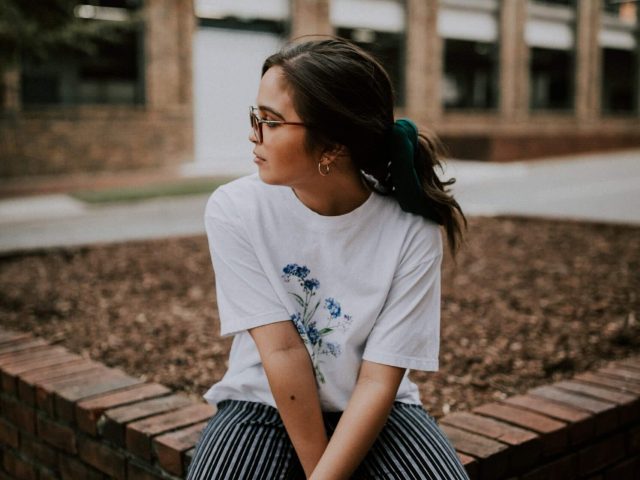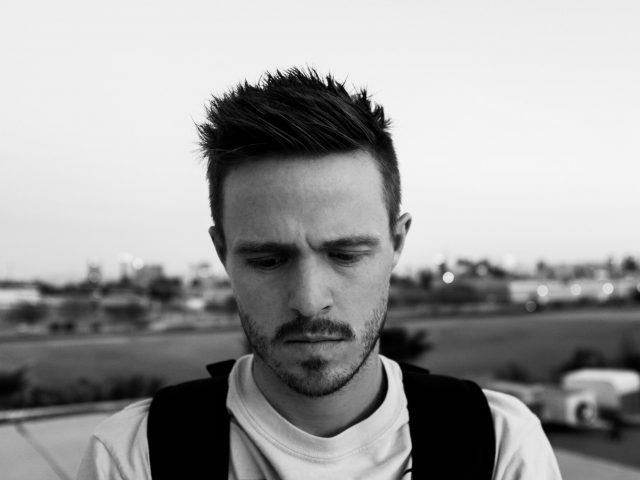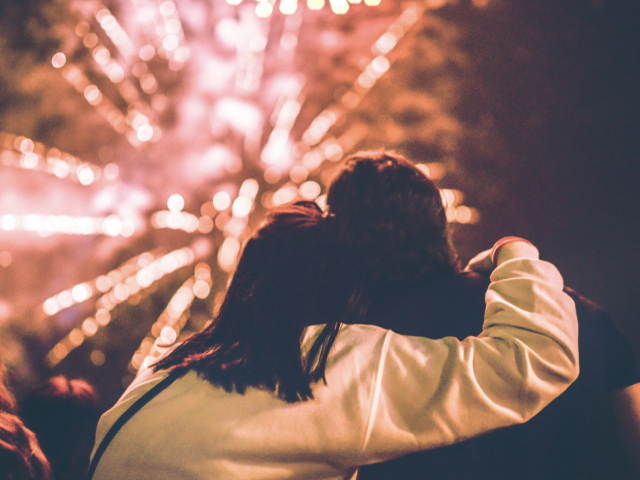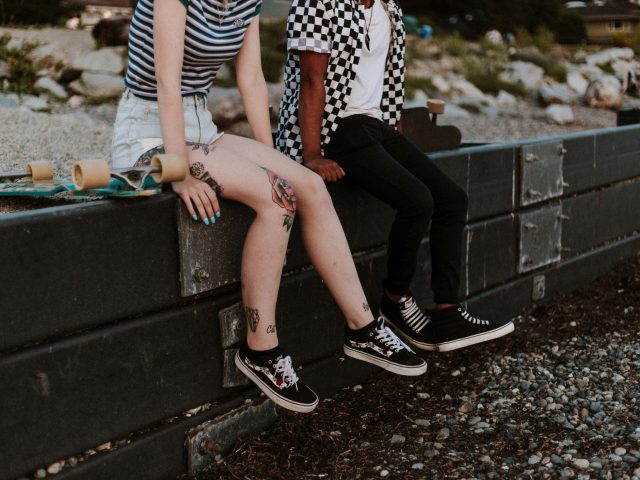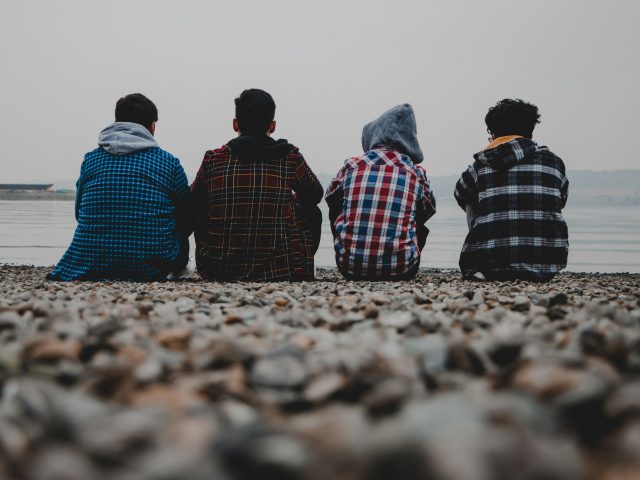Relationship abuse can affect any person regardless of age, race, gender, sexual orientation, national origin, social class, and ability. You can be the class valedictorian or the star quarterback, the new face of CoverGirl or an introverted wallflower. Anyone can be a victim of relationship abuse.
Abusive partners in LGBTQIA* relationships — Lesbian, Gay, Bisexual, Transgender, Queer, Intersex and Asexual — use the same tactics to gain control of their partners as abusers in heterosexual relationships. Just like abuse in heterosexual relationships, abuse in LGBTQIA* relationships can be physical, sexual, emotional or even financial. And while the epidemic of abuse does not discriminate, it’s also important to acknowledge the unique challenges some victims might face given their identity. Abusive partners in LGBTQIA* relationships sometimes use societal factors to maintain control over their partner. Also, when trying to leave an abusive relationship or access help and resources, LGBTQIA* victims face an added layer of complexity. LGBTQIA* youth experience relationship abuse at the same rates as heterosexual couples do, and one in three young people experience relationship abuse at some point in their lives, regardless of gender or sexuality.
As a queer, male-bodied survivor of sexual violence myself, I know it is important to speak about the ways that our identities shape our experiences and our access to resources. I’m here to talk about some aspects of dating abuse that are specific to LGBTQIA* relationships and why they’re so important to recognize.

Homophobia and transphobia makes it harder to speak out
Many victims of dating and sexual violence feel scared or apprehensive to come forward or report the crimes against them because they fear that they won’t be believed or become outcasts in their community. LGBTQIA* individuals also may not feel safe reporting their experience to authorities because they fear they won’t be believed or they won’t be taken seriously. This fear is amplified among queer and trans folks who have to also wonder if they will face discrimination and prejudice, especially when the assumption is that sexual and relationship violence only occurs in situations with male perpetrators and female victims.
According to a Buzzfeed article on this subject, “[there have been] stories of police officers saying to a trans woman, ‘You used to be a bloke once; why didn’t you give him a slap back?’”
Moreover, abusive partners in LGBTQIA* relationships may try to use their partner’s sexuality or identity to shame them and exert power over them. They do this by calling them names like “homo,” playing on gender insecurities, like saying “you’re acting like a girl” or pressuring their victim sexually. Abusers will often try to establish these behaviors as “normal” for LGBTQIA* relationships to disguise their intention to control you.

Threatening to “out” someone
Threatening to reveal a person’s sexual orientation or gender identity is a common tactic used by an abuser to control their partner in LGBTQIA* relationships. This tactic is prevalent among relationships where one partner might not be fully public with their identity as a trans or queer person. While some people are comfortable going public with their gender identity or sexual orientation, others may not feel safe or encouraged to do so. Whether it’s telling an employer, a family member, coach or friend – no person should ever threaten to disclose personal information about their partner without their consent.

Extra incentive for keeping that “perfect couple” image
Among many marginalized groups, there is a pressure to assimilate to mainstream culture which can make it harder to discuss or address problems within that community. Dating and sexual violence is just one example of this. People of marginalized groups may feel as though they need to maintain a façade of perfection in order to be accepted by their peers or family. They may try to overcompensate for any predisposed stigma that people have against their group to protect the image of all its members. For example, a lesbian individual may be seeking acceptance of her relationship from her friends and hide her partner’s abuse so that her friends do not form a negative perception of all lesbians. We know that statistically the issue of abuse impacts the LGBTQIA* community just as much as any other community, so we need to make sure that we actively work to change the stigma of gender-based violence in marginalized communities.

HIV status can be a tactic for manipulation
While HIV/AIDS impacts people of all gender identities and sexual orientations, we know that queer and trans folks are disproportionately affected by the virus. It is never okay for a partner to threaten to reveal anything about your medical condition without your consent or to prevent you from accessing proper medical treatment. In some extreme cases, an abusive partner who is HIV+ will threaten to infect a partner if they decide to leave the relationship. They may also claim that they will die or become more ill if their partner breaks up with them as a form of guilting their partner into staying in the relationship. Manipulation, threats and making you feel guilty are never okay in any relationship.
[clickToTweet tweet=”Manipulation, threats and making you feel guilty are never okay in any relationship.” quote=”Manipulation, threats and making you feel guilty are never okay in any relationship.”]

So… what can we do?
At the One Love Foundation, we are constantly working to raise awareness and start conversations about relationship violence with young people across the country. We want everyone to understand that abuse can impact anyone regardless of identity. You can help us educate your peers about the warning signs of relationship abuse and start conversations about how this issue impacts the LGBTQIA* community by bringing the Escalation Workshop to your campus or community. Supporting organizations and causes that fight against transphobia, homophobia, and biphobia also helps to decrease the barriers to reporting and increase access to resources that can help LGBTQIA* victims and survivors of dating and sexual violence.
If you or someone you know may be experiencing relationship abuse, please do not hesitate to consult these resources:
- The Anti-Violence Project: AVP operates a free bilingual (English/Spanish), 24-hour, 365-day-a-year crisis intervention hotline that is staffed by trained volunteers and our professional counselor/advocates to offer support to LGBTQ & HIV-affected victims and survivors of any type of violence. Call 212-714-1141
- The National Domestic Violence Hotline: Signs of LGBTQ Relationship Abuse. Their 24-hour hotline number is 1-800-799-7233
Browse by Category

National Minority Mental Health Awareness Month: Addressing Abuse in Minority Communities
July is National Minority Mental Health Awareness Month, and it's an essential time to talk about our relationships and the…
Celebrate Your Freedom: Independence in Relationships
As Independence Day rolls around, let’s chat about something just…
Practicing Equality in Your Relationships
Equality is one of One Love’s 10 Signs of a…
How To Talk To A Friend In An Unhealthy Relationship
It’s not easy to know how to talk to a…
Hope After Abuse: What I Wish I Knew About Relationships In College
As a freshman in college – my first real time…








